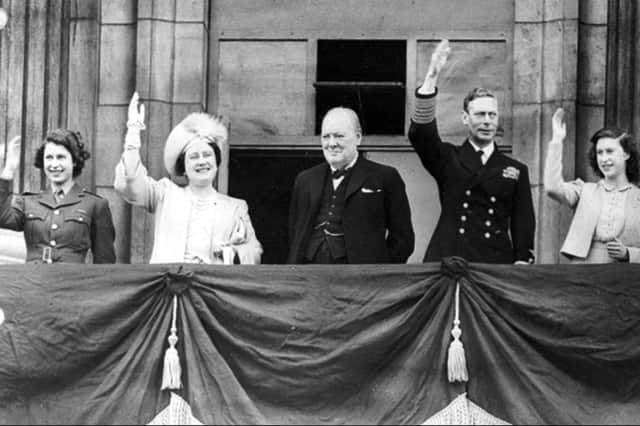VE Day: Why Britain is not overly obsessed with the Second World War – Alastair Stewart


There's a turgid cliche doing the rounds that we're obsessed with the Second World War. Waterstones, where I worked as a student, always had a run on history books about it. Yes, some of the buyers were eccentric but most had a keen fascination. The selection was thematically broad, from grand accounts right down to the minutia of regiments, materials and uniforms.
Of course, this doesn't answer the charge. Are we obsessed culturally?
Advertisement
Hide AdAdvertisement
Hide AdNo, is the short answer. Historian Andrew Roberts once wrote that if Winston Churchill returned to Earth, it wouldn't take him along to acclimatise.
The world today is not that different from the one he made. Russia is still an enigma, China is large and looming, and Europe is fractious but at peace. There's also that perennial question of whether Britain is in, next to, or entirely separate from our European neighbours.
Sometimes history offers good guys and straight off villainy. Often there's a spectrum of grey in which you pick and choose and understand through the prism of our time.
The Nazi regime and Adolf Hitler were an unredeemable wave of total darkness. Their vision was despicable, their actions evil, and they were a stone's throw distance away from dominating Europe, and possibly the world.
The problem is that it sounds a cliche because it is the original cliche. It's a modern dystopian story. Hitler is a textbook a definition of evil to the point of pastiche.
Churchill, in his 60s, quirky in style and manner with a sea of wit and pluck to his name is less a man and more a vessel of the best of British virtues.
As the decades have rolled on, Churchill's bon mots and witticisms against Hitler's outright criminality have gripped the imagination. Romanticisation has lead to derision and dismissal. The 'Finest Hour' can't possibly be as fine as they say, it can't possibly have been good versus evil.
And yet it was - between 1939 and 1942, before the US entry into the war, Britain was the bulwark of an imperial alliance against Nazism. It did not fight alone, but it did lead the charge.
Advertisement
Hide AdAdvertisement
Hide AdIt was an almost impossibly brave decision by men and women from all strata of public life. As Churchill aptly said, the country had the lion's heart; he had the luck to give the roar.
As we commemorate VE Day, it's right to worry our history is being politicised, particularly as fuel for Brexit (both pro and Remain).
If we're to do all those men and women, at home and abroad, civilian and military, who died any justice, we'll pick up a book or read their stories online. If we honour their sacrifice, we'll not forget the hard-fought truth in all its ugliness, and all its valour.
A message from the Editor:
Thank you for reading this article on our website. While I have your attention, I also have an important request to make of you.
With the coronavirus lockdown having a major impact on many of our advertisers - and consequently the revenue we receive - we are more reliant than ever on you taking out a digital subscription.
Subscribe to scotsman.com and enjoy unlimited access to Scottish news and information online and on our app. With a digital subscription, you can read more than 5 articles, see fewer ads, enjoy faster load times, and get access to exclusive newsletters and content. Visit www.scotsman.com/subscriptions now to sign up.
Our journalism costs money and we rely on advertising, print and digital revenues to help to support them. By supporting us, we are able to support you in providing trusted, fact-checked content for this website.
Joy Yates
Editorial Director
Comments
Want to join the conversation? Please or to comment on this article.